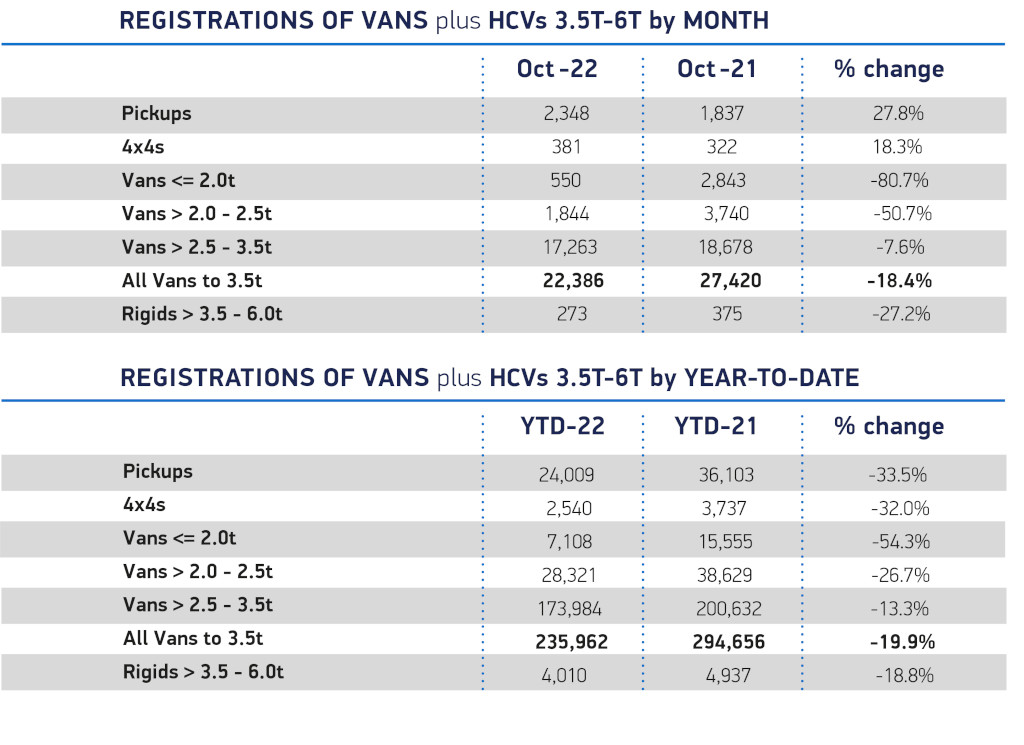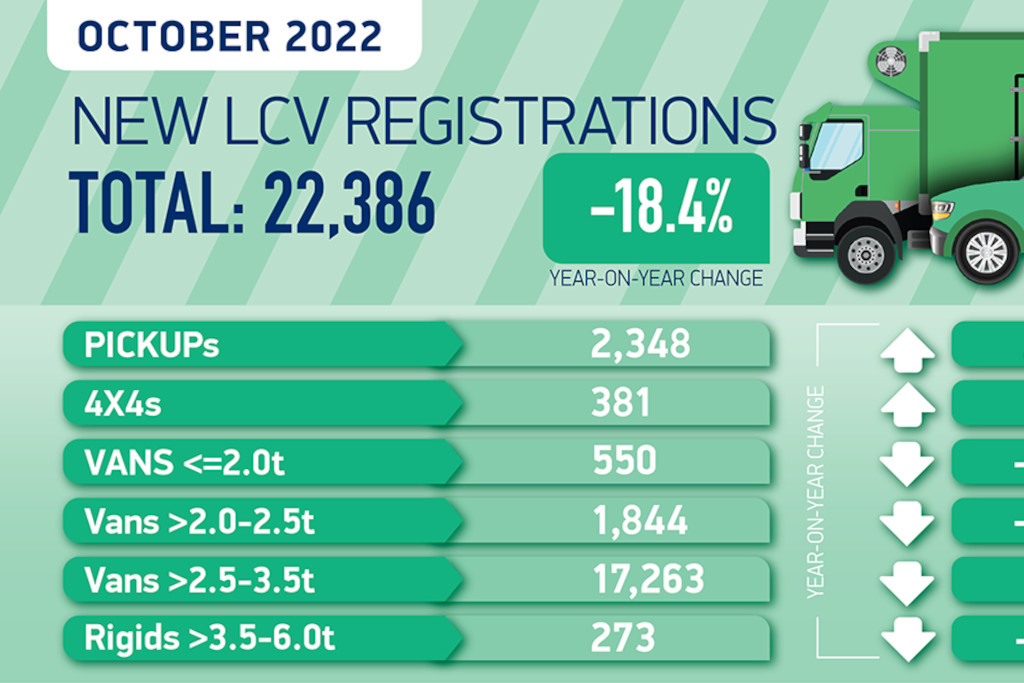Britain’s new light commercial vehicle market declined by 18% in October, with only 22,386 vans being registered in the month. This continues the general trend of the year, a downward slide only broken by a 10% surge in September.
October registrations were at their lowest monthly level since 2012, and remain a long way below the pre-pandemic five-year average.
Against this downward trend, the battery electric van (BEV) market share continues to increase. While the year-to-date numbers are small, the increase from 8,546 to 13,065 represents a 52.9% improvement from 2021. This represents a market share of 5.5%
This BEV trend is expected to continue in the future. More and cheaper zero emissions van models are being produced, leading to lower costs. Combined with zero emission incentives for companies, and their desire to reduce their carbon footprints, the BEV market share should only increase.
Demand is strong across the board. The low performance is due to continuing supply issues, such as parts shortages.

Mike Hawes, SMMT Chief Executive, said, “The UK’s van market continues to be shackled by supply shortages amid difficult operating conditions, which will likely continue into 2023, easing over the course of the year. Demand for zero emission vans remains robust despite these challenges, but a successful net zero transition will require measures targeted at long-term operator confidence.”
Van Ninja continues to build its stock levels, although it is a slow process with vans often being sold as soon as they arrive. Because stock is sold quickly, we recommend that customers apply quickly to ensure they can reserve their chosen vehicle.
Our van leasing options currently cover small, medium and large vehicles, with some specialist vans on the way soon.

